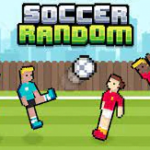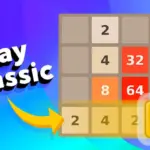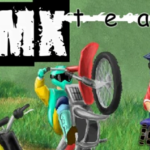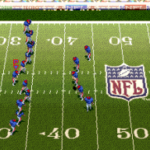The manga series “Rejoice In Your Enemies manga” has taken the world of Japanese comics by storm, captivating readers with its unconventional approach to morality and character development. This thought-provoking series pushes the boundaries of traditional storytelling, forcing readers to question their preconceived notions of right and wrong. Let’s dive deep into how this manga challenges conventional morality and keeps fans coming back for more.
Subverting Expectations: The Anti-Hero’s Journey
“Rejoice In Your Enemies” follows the story of Ren Zhichu, a character who defies typical protagonist archetypes. Unlike the noble heroes often found in shonen manga, Ren is introduced as a bitter and vengeful individual, harboring intense hatred for the new student who “stole” his crush. This premise immediately sets the stage for a morally complex narrative that challenges readers’ expectations.
The manga’s exploration of Ren’s character arc is a masterclass in subverting traditional morality tales. Instead of following a straightforward path of redemption, Ren’s journey is filled with morally ambiguous choices and unexpected consequences. This approach forces readers to confront uncomfortable truths about human nature and the complexities of real-world relationships.
Gray Areas of Morality
One of the most compelling aspects of “Rejoice In Your Enemies” is its refusal to paint characters as purely good or evil. The manga delves into the gray areas of morality, presenting situations where the line between right and wrong becomes blurred. This nuanced approach to storytelling resonates with readers who appreciate more realistic and complex character motivations.
Challenging Societal Norms Through Manga
“Rejoice In Your Enemies” goes beyond simply telling an engaging story; it actively challenges societal norms and expectations. The manga tackles themes such as bullying, social hierarchies, and the pressure to conform, all while questioning the traditional moral frameworks that often govern these issues in other media.
By presenting morally ambiguous scenarios, the series encourages readers to think critically about their own beliefs and values. This approach has sparked numerous discussions among fans, who debate the characters’ actions and motivations long after finishing each chapter.
The Power of Perspective
One of the most innovative aspects of “Rejoice In Your Enemies” is its use of multiple perspectives to challenge traditional notions of morality. The manga frequently shifts between different characters’ viewpoints, allowing readers to see events from various angles. This technique not only adds depth to the storytelling but also highlights the subjective nature of morality itself.
Breaking Manga Conventions: Storytelling Techniques
“Rejoice In Your Enemies” doesn’t just challenge moral conventions; it also pushes the boundaries of manga storytelling techniques. The series employs unique visual metaphors, unconventional panel layouts, and innovative use of negative space to convey complex emotions and moral dilemmas.
These artistic choices not only enhance the reading experience but also serve to underscore the manga’s themes of moral ambiguity. By breaking away from traditional manga conventions, “Rejoice In Your Enemies” creates a visually striking and emotionally resonant narrative that keeps readers engaged and challenged.
Symbolism and Metaphor
The manga makes extensive use of symbolism and metaphor to explore its themes of morality and personal growth. From recurring motifs to carefully crafted visual allegories, every panel is imbued with deeper meaning. This attention to detail rewards attentive readers and encourages multiple re-readings to uncover new layers of significance.
Impact on Manga Culture and Fan Engagement
The success of “Rejoice In Your Enemies” has had a significant impact on manga culture and fan engagement. Its challenging themes and innovative storytelling have inspired countless fan theories, artwork, and discussions across social media platforms and fan forums.
The manga’s popularity has also influenced the broader manga industry, encouraging other creators to explore more morally complex narratives and push the boundaries of traditional storytelling. This shift towards more nuanced and thought-provoking content has been welcomed by many manga fans who crave deeper, more challenging reads.
Community and Discussion
One of the most remarkable aspects of “Rejoice In Your Enemies” is how it has fostered a vibrant community of engaged readers. Fan discussions often revolve around the moral choices made by characters, with readers debating the ethics of various actions and speculating on future plot developments. This level of engagement speaks to the manga’s ability to challenge readers and spark meaningful conversations about morality and human nature.
The series has also inspired numerous fan creations, from fan art exploring alternative character designs to fan fiction that delves even deeper into the moral complexities of the story’s world. This creative engagement further demonstrates the impact “Rejoice In Your Enemies” has had on its readership and the broader manga community.
A New Era of Morally Complex Manga
rejoiceinyourenemies.com represents a new era in manga storytelling, one that isn’t afraid to challenge traditional notions of morality and push readers to question their own beliefs. By presenting complex characters, morally ambiguous situations, and innovative storytelling techniques, this series has carved out a unique place in the manga landscape.
As the manga continues to unfold, it promises to keep readers on their toes, constantly challenging expectations and forcing us to confront uncomfortable truths about human nature. Whether you’re a long-time manga fan or new to the medium, “Rejoice In Your Enemies” offers a thought-provoking and emotionally resonant experience that’s not to be missed.
Have you read “Rejoice In Your Enemies”? How has it challenged your perceptions of morality in manga storytelling? Share your thoughts and experiences in the comments below, and let’s continue this fascinating discussion about the evolving landscape of morally complex manga!


































